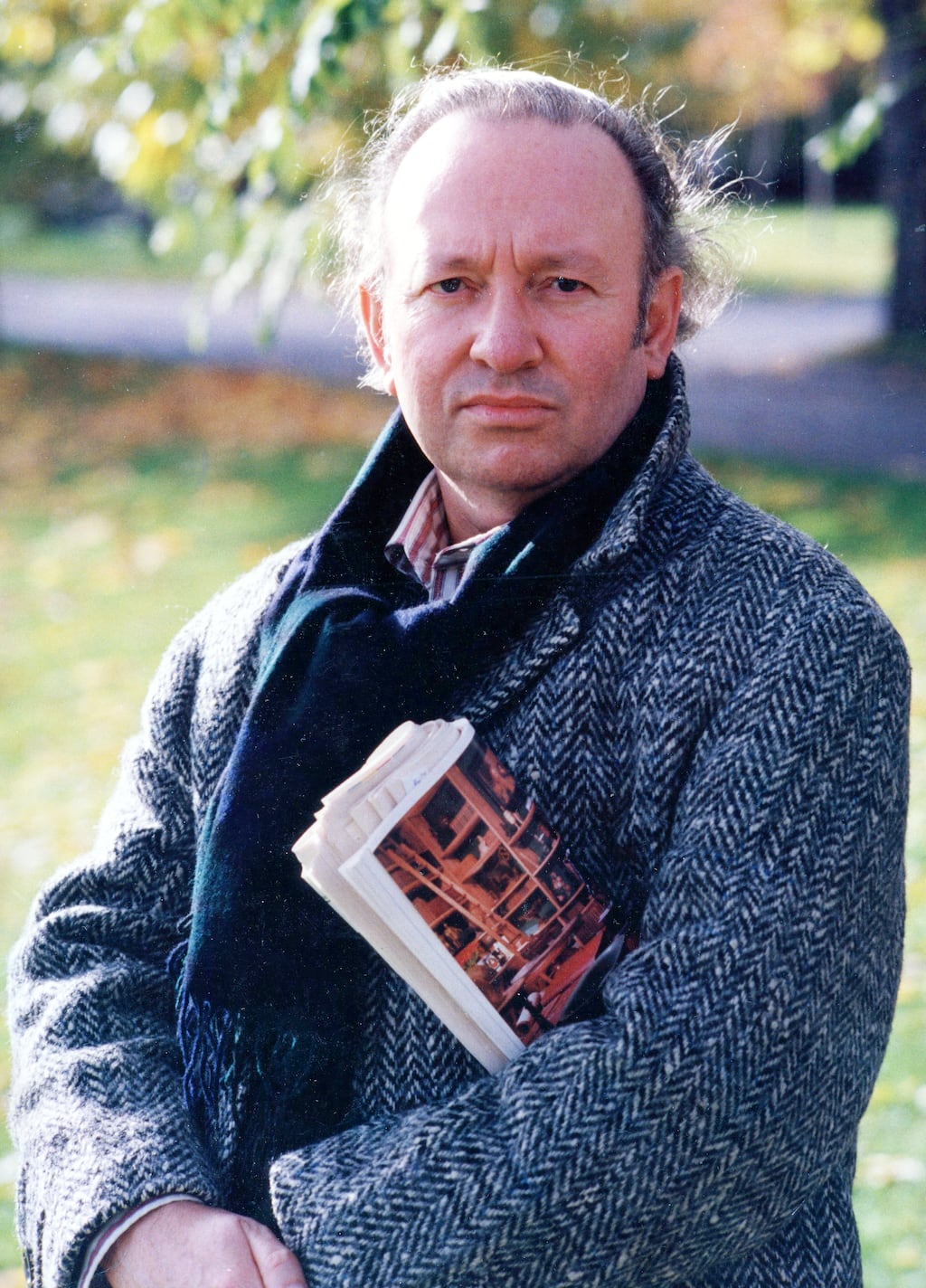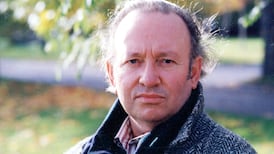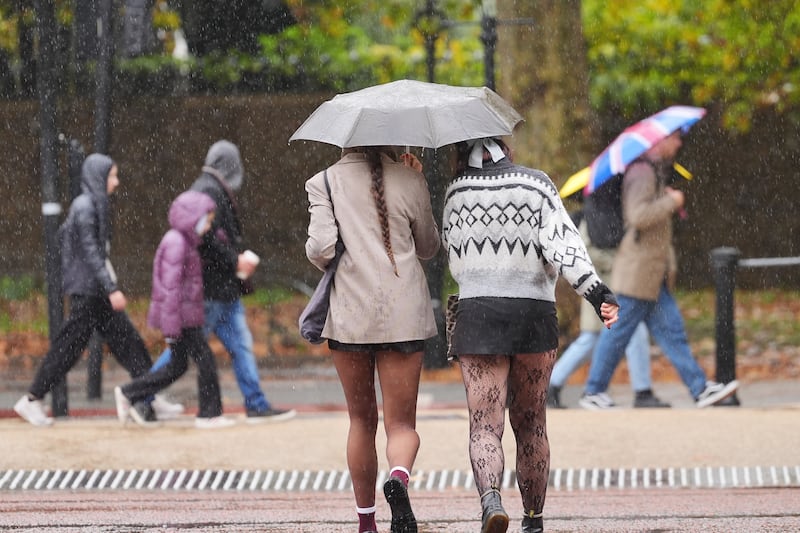Every writer aims to make every work a masterpiece, but some are cursed by making only one, which outshines all the others as Saturn outshines its moons. Think of F Scott Fitzgerald and The Great Gatsby; of JD Salinger and The Catcher in the Rye; of Aidan Higgins and Langrishe, Go Down. In A Disused Shed in Co Wexford, Derek Mahon wrote the greatest single Irish poem since the death of Yeats, but his work, previous and subsequent, somehow escaped the glare of it.
But what a glare it is. The late Michael Longley told of how, one morning in the middle of the 1970s, he and his wife, the literary critic and academic Edna Longley, were having a weekend lie-in. Hearing the rattle of the letterbox, he went down to the hall and collected the post and brought it back to bed. One of the envelopes, on which he recognised the handwriting, contained a poem. He read it, read it again, then sighed grimly and said, “I’m giving up poetry.”
He didn’t, of course, for which we must offer thanks to the muse Calliope, but his impulse that morning is understandable. The poem was, of course, A Disused Shed, fresh from the smelter, its plangent power immediately apparent. It had its origins in passages from two novels, Troubles and The Lung, by his friend JG Farrell, in both of which there occurs the image of a tumbledown garden shed and “pale fungus growing towards the light”. In Mahon’s poems this becomes:
in a disused shed in Co Wexford,
among the bathtubs and the washbasins
a thousand mushrooms crowd to a keyhole.
...
They’re begging us, you see, in their wordless way,
to do something, to speak on their behalf
or at least not to close the door again.
Lost people of Treblinka and Pompeii!
There is another poem, which can be taken as a companion piece to A Disused Shed, not as well-known though it is very nearly as fine, and which is one of my own favourites among this superb poet’s work. The central conceit of A Garage in Co Cork – “Like a frontier storefront in a western / It might have nothing behind it but thin air” – is that the long-departed couple who ran the abandoned filling station have undergone a marvellous Ovidian metamorphosis:
READ MORE
A god who spent the night there once rewarded
Natural courtesy with eternal life –
Changing to petrol pumps, that they be spared
For ever there, an old man and his wife.
Here is a poet given to what Louis MacNeice called “the drunkenness of things being various”. Unfortunately, he was also given to a more prosaic and familiar form of drunkenness.
Derek’s on-again, off-again drinking was as much a part of him as his cravats, his blazers and the drawl which he affected mainly for comic effect. I recall an evening in the 1990s when I stood with him at the bar in a crowded Paris restaurant while we waited for a table. “Of course, I don’t drink at all any more,” he remarked casually, as the barman handed him the double Pernod he had just ordered. In a way I understood what he meant; compared to the quantities he used to put away, he was by then practically a teetotaller.
In a rueful but characteristically elegant essay, At Aristaeus’ House, he bemoaned the price the drunkard must pay for his drunkenness. “Insomniac, disoriented and paranoid, I made the acquaintance of a series of detox-and-rehab establishments. This ... went on for several years: in and out, in and out, the ‘revolving door’ as they call it. (I’d have to celebrate sobering up, you see.)”
I mention the booze only in order to express my wonderment at how much he achieved despite his addiction – a body of work universally celebrated for its intensity, poise and sure-footedness.
He did sober up and stayed on the wagon for years, though I heard he occasionally fell off it towards the end. By then I had lost touch with him. He was living in Kinsale. I hope he was happy there. He continued writing steadily, and in 2018, two years before he died, he published one of his finest collections, Against the Clock, which I had the happy occasion to review in these pages, and which I described as “superb, thrilling and fizzingly exuberant”. I would say the same today, of all his work.
[ Derek Mahon obituary: One of the great poets of his generationOpens in new window ]
Which, by the way, can be found collected in three magnificent volumes from Gallery Press: The Poems (1961-2020), The Prose (1971-2020) and The Adaptations (1975-2020) – this last contains some masterly things, for instance a gracefully Englished version of Valéry’s Le Cimetière Marin, and many delightful surprises, such as a translation of a poem, The Clifden Road by, of all people, Michel Houellebecq.
He touched greatness in A Disused Shed, and in his restrained laments for lost loves, lost opportunities, squandered promises
The goddess Fama demands hard work and strict devotion from the supplicants at her altar. Mahon was a devotee and a tireless worker. But there was something in him that made him hold back, aloof from the marketplace. He was aware of this, and unrepentant. “Some call my own stuff ‘chilly’,” he wrote, “and I’m happy with that if it means I’m one of those who try to avoid sentimentality and look for a more bracing note. Maybe the slight chill is a side effect of the contrarian impulse; perhaps it’s just one more character defect.”
Although he was ever conscious of, if not always happy with, his northern Irish heritage, his was a wide-ranging sensibility – look at the variety of The Adaptations, which range from Sophocles though Petrarch and Li Po to Pablo Neruda and Pier Paolo Pasolini, as well as the modern Irish of Nuala Ní Dhomhnaill, and the 17th-century Latin of the anonymous Bangor Antiphony. All the same, however much of an internationalist he may have been, he would not have gone as far as Joyce’s Shem the Penman, who “would far sooner muddle through the hash of lentils in Europe than meddle with Irrland’s split little pea”. The accent was always Irish.
The artistic stance he struck was perhaps at times a little too urbane, a stroke too polished. He had something of one of Baudelaire’s fláneurs, as much at home on the Boulevard Saint-Michel or Madison Avenue as on the Malone Road. In an essay on MacNeice and his “vigorous, glittering talent”, he quoted approvingly MacNeice’s famous prescription: “I would have a poet able-bodied, fond of talking, a reader of the newspapers, capable of pity and laughter, informed in economics, appreciative of women, involved in personal relationships, actively interested in politics ...
What he did not seem to realise – unless his tongue was firmly in his cheek – was that he could have been describing here your averagely cultivated bank manager or estate agent, or, more to the point, your average minor poet. In the same essay, Mahon recalls Philip Larkin writing in an obituary notice that MacNeice could have written the lyrics of These Foolish Things. Just so.
[ True then, true now: revisiting the journalism of the great poet Derek MahonOpens in new window ]
Of course, it is too early yet – he is only dead five years – to pronounce on Mahon’s position in the pantheon of poets, but what is certain is that he will be there.
He touched greatness in A Disused Shed, and in his restrained laments for lost loves, lost opportunities, squandered promises. Throughout, the tone is elegiac, even when, perhaps especially when, he is at his jauntiest. In the first stanza – and no other poet of his generation could shape a stanza with such elegance and boldness – of the very first poem in the Gallery Press collection of his verse, Spring in Belfast, a particular voice is established:
Walking among my own this windy morning
in a tide of sunlight between shower and shower,
I resume my old conspiracy with the wet
stone and the unwieldy images of the squinting heart.
Once more, as before, I remember not to forget.
Yes, he roamed far abroad, but carried the home place with him always. A Bangor Requiem, which begins in a cemetery “on a cold hillside in Co Down” where his mother’s funeral is taking place, moves on to a rueful evocation of his Belfast childhood and “the plain Protestant fatalism of home”:
I grew up among washing lines and grey skies,
pictures of Brookeborough on the gable ends,
revolvers, RUC, ‘B’ Specials, law’n’order,
a hum of drums above the summer glens
shattering the twilight over lough water
in a violent post-industrial summer blaze ...
He made an early escape from the “wee North” and fled south, to Dublin and Trinity College and a flat in Merrion Square which he shared with his friend and friendly rival Michael Longley. He was a less than assiduous student, and in 1963 was suspended from college for “unsatisfactory lecture attendance”, although he was readmitted the following year.
From the start he had his demons, which was no doubt why he sought the antidote of the counter-demon, drink.
There were mysterious mishaps in those early years the after-effects of which lingered long. His biographer, Stephen Enniss, writes: “Recalling his time at Trinity many years later, Mahon once described an incident when he ‘nearly smashed up a friend’s car driving back to Dublin from an all-night party in the Wicklow hills’. Ever since, he explained, he had been a non-driver.”
Then, in January 1962, he either jumped or fell into the Liffey at Butt Bridge. A passerby rescued him, and he was hospitalised; however, as Enniss writes, “the incident seems to have passed quietly; some later heard he had simply gone swimming in the river”. Swimming, in the Liffey, in January? In an unpublished poem, which Enniss quotes, Mahon himself treated the matter with what characteristically ponderous levity:
On the third day he rose, in sheer terror –
What has the world been up to while he was away?
His eyes rebuke him from a hospital mirror,
Unnatural in the familiar light of day.
Again, one dwells on these matters only to emphasise the poet’s fortitude, resilience and commitment to the artist’s task. The three Gallery Press volumes are testament to his unremitting productivity – The Poems volume is more than 500 pages, and The Prose, astonishingly, is almost as long.
Here was an exemplary artist who worked to the last, and left us a precious legacy of transcendent beauty, vigour, wit and profundity. Let us close with the final verses of a poem which Mahon dedicated to the memory of his friend and fellow poet Ciaran Carson:
Still life goes on. Out there
pebbles ‘clock’ on the shore,
discordant details thrive
in the chaos where we live
and a true note can be heard:
the voice of a blackbird,
descendant of the bird
noted in marginal ink
by a ninth-century monk
transcribing on goatskin
our formal rubric: ‘In
the beginning was the word ...
The title of the poems is A True Note. Indeed.
To mark the fifth anniversary of Derek Mahon’s death, The Gallery Press in association with University of Notre Dame presents A Celebration of Derek Mahon with readings by John Banville, Claire Keegan, Paul Muldoon, Eiléan Ní Chuilleanáin and Stephen Rea in a programme devised by Peter Fallon and with rare video recordings of Mahon, at the Royal Irish Academy of Music, Westland Row, Dublin 2, on November 4th at 7.30pm. Tickets from The Gallery Press website.
















